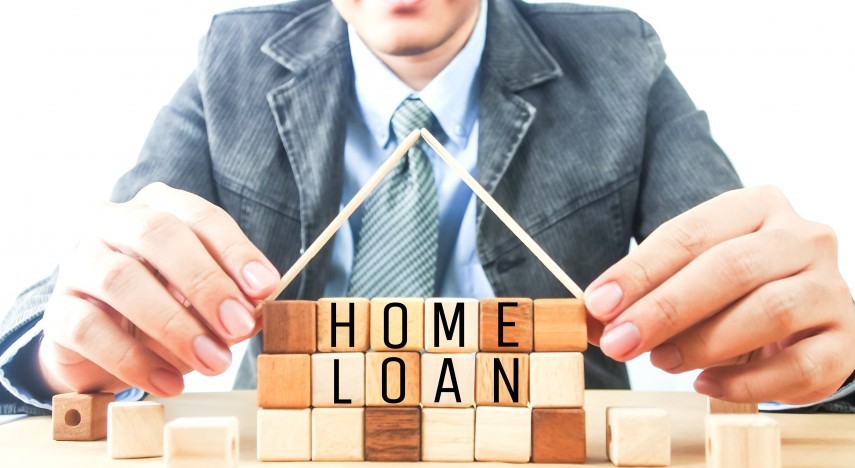Whether you’re a student with a small nest egg of savings or a professional with a deposit ready to go, there are a number of options available for you to choose from when it comes to getting yourself on the property ladder.
Before immersing yourself in the nitty gritty, it is important to consider a few factors before you set off on your homeownership adventure. Firstly, you’d want to set yourself a realistic goal as to how much you can afford to spend/borrow. You don’t want to be spending the next 30 years regretting the decision that you’ve punched well above your weight and have ended up in a situation that leaves you with a property that is fiscally (and by extension, emotionally) draining.

Here’s a handy list (courtesy of Lendi [1]):
- How much you want to borrow
- Your income and employment history
- Details of your expenses, assets, and liabilities
- How you’d like to repay your home loan
- If you’d prefer an offset account, redraw the facility, or the flexibility to make extra repayments
- Your requirements and objectives
Secondly, it is key to do the necessary research to get the best possible deal for your current financial situation. Thankfully there are resources available online that can help you get a clearer understanding of the necessary processes as well as the kind of financial options that are available in today’s real estate market.
We’ve compiled a list of the most common types of home loans available and how you would be able to best benefit from them.
Fixed-rate loan
Owing to its predictability, this type of loan is the most popular option for home buyers. If you opt for a fixed-rate loan, your repayments will be consistent for the life of your loan, a feature which appeals to those who need stability; young families, for example. The main drawback of this arrangement is the loss of potential benefits from a temporarily decreased rate, but those who choose this option are typically won over by the promise of consistent, manageable mortgage repayments. If you’re looking for something a bit more flexible, you might be better off with an…
Adjustable-rate loan
As the name suggests, an adjustable-rate loan allows for the fluctuation of interest rates [2], which means the homebuyer stands to win or lose depending on whether rates rise or fall. Typically, this structure will net you lower rates for the first few years of your loan, which makes this a great option for buyers with poor credit scores. The unpredictability of interest rates could create problems for those with less expendable income, or in the event of unforeseen expenses. If that lack of expendable income is making it difficult to save a sizeable deposit, it’s worth looking into an…
FHA loan
Young home buyers love this option, and for several good reasons. Large sums of money can be hard to come by for young singles and couples, and the low down payment requirement of 3.5% topples a major hurdle. An FHA loan is also extra lenient when it comes to credit scores and income qualification, which is bound to appeal to those entering the housing market for the first time. Be wary, however, of changing interest rates if you are taking on a large loan – the extra repayments can add up quickly. The best part is that the FHA loan opens the prospect of home ownership for many, but the same can’t be said for the…
VA loan
Thanks to its bundle of attractive benefits, the VA loan is looked upon as the most attractive mortgage option, but it’s only available to eligible war veterans. This loan type enables veterans to waive the down payment and finance 100 percent of a house’s value without taking out mortgage insurance. It also promises low mortgage rates for the life of the loan, making this the cheapest type of loan available.
The perks are nothing to sniff at, but this type of loan requires a veterans’ certificate of eligibility and a credit score of 620. If you are ineligible for a VA loan, you might have more luck with something more accessible, like a…
Conventional loan
Conventional loans are similar to Government-insured loans in some ways, only more stringent; a down payment between 5 and 20 percent is required, as is mortgage insurance on loans of over 80% of the property value[3], and applicants’ credit scores are scrutinised before the money is issued. The benefit of lower private mortgage insurance fees means that home buyers who have good credit and savings for a large down payment may be better off with a conventional loan than an FHA loan. If the home you’re looking to buy is less ‘live-in prospect’ and more ‘finance-generation strategy’, you’ll be better off with an…
Investment property loan
Real estate is the most popular roadmap to wealth accumulation and for good reason. Striking the most effective deal possible is doable if your knowledge of investment property loans works in your favour, while the rent collected from tenants should eventually pay off the loan. This loan type affords investors a range of options suitable for financing up to four units at a fixed rate over a period of 30 years. Once you’ve found the perfect property, remember to read up on the additional costs for investors, including stamp duty, landlord insurance, land tax, and rates.
